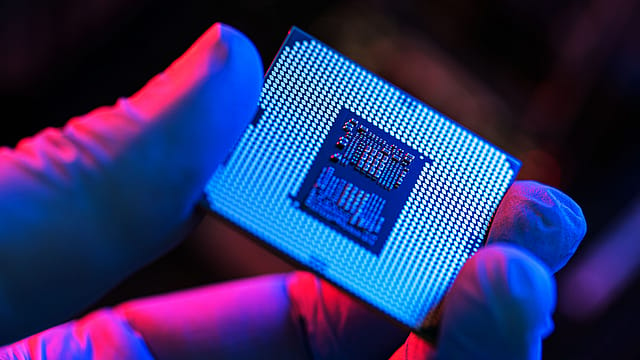Vedanta-Foxconn JV to make semiconductors in India
ADVERTISEMENT

Mining giant Vedanta on Monday said it has partnered with chip maker Foxconn to make semiconductors in India as the country plans to cut its reliance on imported chips.
Hon Hai Technology Group, the world's largest contract electronics manufacturer and supplier of Apple iPhone, signed a memorandum of understanding (MOU) with Indian conglomerate Vedanta to form a joint venture company that will make semiconductors in India, the company said in a statement.
Vedanta will hold the majority of the equity in the JV, while Foxconn will be the minority shareholder. Vedanta chairman Anil Agarwal will be the chairman of the joint venture company, according to the MOU signed between the two companies.
This joint venture between the two companies is expected to boost Prime Minister Narendra Modi’s vision to create an ecosystem for semiconductor manufacturing in India.
It also comes at a time when India's automobile industry is facing challenges due to the global chip shortage kicked off by the pandemic last year, resulting in a slowdown in car sales. To tackle the issue, the automakers have now rationalised the number of semiconductors used in the manufacturing of automobiles. The semiconductor shortage is likely to continue for the next one year.
The targeted project plans to set up a plant for semiconductor manufacturing, Vedanta said. "It will provide a significant boost to domestic manufacturing of electronics in India. Discussions are currently ongoing with a few state governments to finalize the location of the plant."
The collaboration between Vedanta and Foxconn follows the government's recent policy announcement for electronics manufacturing and Product-Linked Incentive (PLI) scheme for incentivising organisations to contribute towards development of this sector. This will be the first joint venture in the electronics manufacturing space after the announcement of the policy.
The Union Cabinet had approved a ₹76,000-crore Product-Linked Incentive (PLI) scheme for semiconductor and display manufacturing in December 2021. "The setting up of 'India Semiconductor Mission' will drive this sector. Incentives of ₹2.3 lakh crore will be given," the government had said at the time.
Vehicle sales in India took a hit during January as the global semiconductor shortage continued to take a toll on automobile production. Retail sales of vehicles dipped 10.69% on an annual basis during the month, as per the data released by Federation of Automobile Dealers Associations (FADA). Auto sales during January 2022 saw an even bigger decline of 18.41% when compared to the figures from January 2020 – a regular non-Covid-19 month.
In spite of good demand, passenger vehicle sales continue to face the brunt of semiconductor shortage, FADA chief Vinkesh Gulati had said.